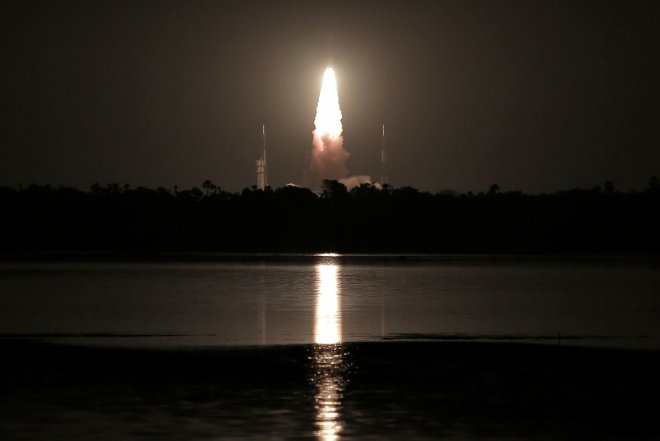
India plans to develop smaller rockets which will carry small satellites of payload less than 500 kg and the project is likely to be effective from 2020.
K. Sivan, Director of Vikram Sarabhai Space Centre (VSSC), a part of Indian Space Research Organisation (ISRO) told media that the first rocket would be ready in two years once the project gets necessary approvals.
According to Sivan, the preliminary design for the proposed four-stage, 100-tonne rocket has already been developed. The feasibility study of the rocket has also been conducted. He said that the smaller rocket would meet the demands of the small satellite segment.
ISRO has been using its rockets to launch small satellites for other foreign space agencies and organizations. It has launched around 209 foreign satellites from 28 countries till date using the agencies Polar Satellite Launch Vehicle (PSLV). The smaller satellites were launched as piggy-backs during the launch of bigger satellites.
The space agency currently has 3 variants of PSLV rockets which weigh between 230 tonnes and 320 tonnes, with carrying capacity between 1,100 kg to 1900 kg. The rockets had been launched 64 times to undertake 92 missions since its first mission in September 1993.
Meanwhile, the Indian space agency had launched multiple Cartosat satellites, remote sensing satellites meant for earth observation this year.
India has been developing its own indigenous Indian Regional Navigation Satellite System (IRNSS) for satellite-based navigation all over India and its neighborhood. The mission aims to provide reliable position, navigation, and timing services in India and its neighbors.
Seven IRNSS satellites are already in their position providing sufficient information. The eighth and last satellite of this group was unsuccessful due to PSLV's failure during the last mission.
Sivan also said that ISRO would launch a Cartosat satellite and several foreign satellites as a piggy-back during a PSLV mission in 2018.
(With inputs from IANS)









